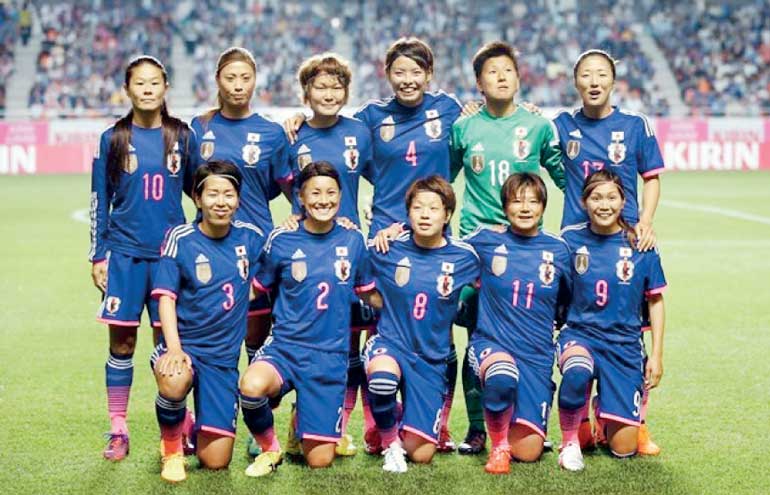Saturday Jan 11, 2025
Saturday Jan 11, 2025
Thursday, 9 July 2015 00:00 - - {{hitsCtrl.values.hits}}
 Japan’s women’s national soccer team players pose for a photo before their women’s international friendly soccer match against Italy in Nagano, central Japan
Japan’s women’s national soccer team players pose for a photo before their women’s international friendly soccer match against Italy in Nagano, central Japan
Reuters: Could women’s football in Asia surpass the corruption-marred, under-achieving men’s game in the popularity stakes?
It might be a long way off but another successful women’s World Cup for the continent’s teams is likely to have only helped close the gap in a region where the men’s game’s biggest mark on the world stage is the match-fixing endemic.
It was a familiar sorry story last year at the men’s World Cup for Australia, Iran, Japan and South Korea as all four failed to record a victory and exited at the first hurdle promising, as ever, to do better next time.
But in Canada, at the recently concluded women’s tournament, the region shone brightly with debutants Thailand the only of the five not to make it through to the knockout stages.
China and Australia made it to the quarter-finals, South Korea won their first match and reached the knockout stages for the first time, while Japan put up a brave defence of the title before losing 5-2 to the United States in Sunday’s final.
Eleven million television viewers in Japan tuned in to watch the final, FIFA said, higher ratings than any of the matches at last year’s men’s World Cup that did not feature the Japanese team.
Praise for the Nadeshiko came from all corners, including Prime Minister Shinzo Abe, while the men humbly looked on.
“They always provide a dream,” Japan men’s striker Shinji Okazaki told Kyodo News this week of the women’s efforts.
“The fact that they got to the final shows how strong they are. We (the men) must learn from them.”
Room for growth
The achievements of the Asian teams were also praised by Asian Football Confederation (AFC) president Shaikh Salman bin Ebrahim Al Khalifa, more used to firefighting corruption amongst his members than lauding performances.
The Bahraini was quick to praise his organisation’s work in promoting the women’s game, highlighting the body’s annual women’s day and the $200,000 subsidies Asia’s five finalists in Canada received from the AFC.
“I am confident that Asian women’s teams will continue to excel on the world stage, with new contenders also starting to challenge established teams for the top positions,” he said in a statement.
“This shows that our women’s football development programmes are starting to bear fruit.”
While green shoots are emerging for the women’s game in Asia, backed by Australian Moya Dodd, the first woman elected to the AFC’s executive committee, there is plenty of room for growth to muscle in further on the men’s popularity share.
Only half of the continent’s near 50 countries signed up for the television rights of the Women’s World Cup, with the game receiving little traction in countries where women’s sport is not widely encouraged.
Just 20 member associations out of Asia’s 46 put forward a women’s team for the 2014 Asian Cup qualifiers, while the women’s football tournament was dropped by Singapore organisers at the Southeast Asian Games last month.
Dodd, though, believed there was a huge support and commitment to grow women’s football in the AFC.
“It’s a credit to our Member Associations and their commitment to make football accessible for girls and women,” she said earlier this year at the first ever AFC Women’s Football Day.